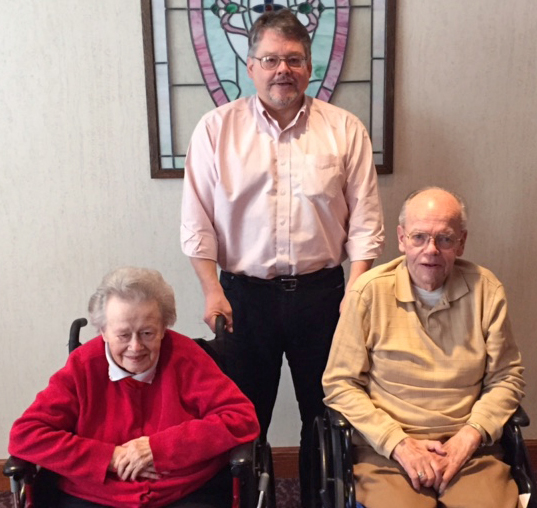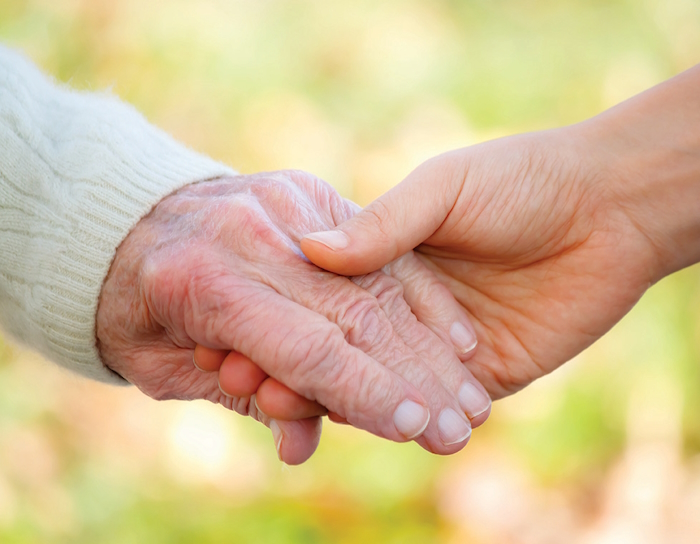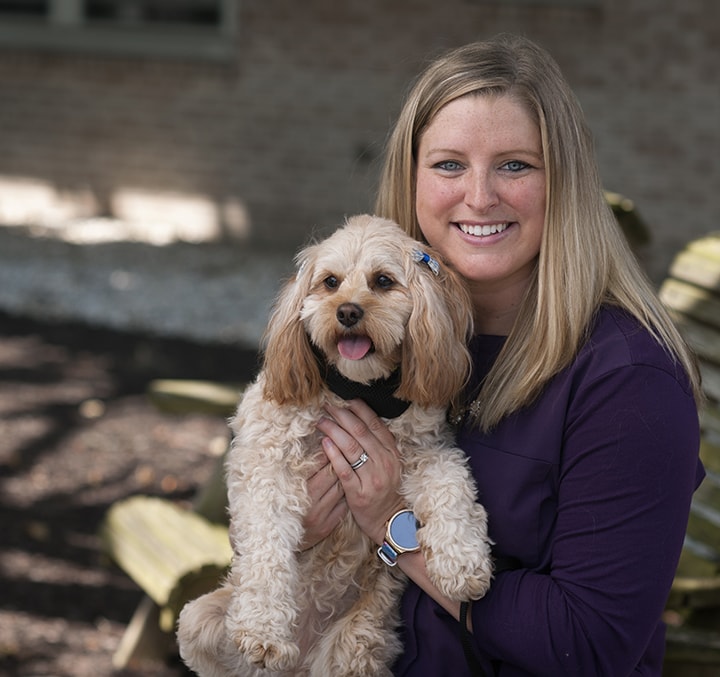Creating New Traditions: The First Holiday After the Loss of a Loved One
 You had always looked forward to experiencing the sounds and scents of the holiday season with family and friends. The traditions you created together decades ago brought you happiness. But after losing a loved one, listening to holiday music, baking cookies and shopping for gifts are much harder to appreciate. The parts of the season you once enjoyed now bring sadness.
You had always looked forward to experiencing the sounds and scents of the holiday season with family and friends. The traditions you created together decades ago brought you happiness. But after losing a loved one, listening to holiday music, baking cookies and shopping for gifts are much harder to appreciate. The parts of the season you once enjoyed now bring sadness.
“Dealing with grief can be more difficult during the holidays,” says Brian Medkeff-Rose, M.Div, M.A., of Homeland Hospice.
He believes one must avoid the pitfalls of “what if” thinking and learn to celebrate joy in the midst of sorrow while remembering your loved one. Medkeff-Rose recommends exploring changes in traditions and developing meaningful rituals.
“Creating new ways to remember your loved one can be a healthy coping technique when grieving,” Medkeff-Rose says.
Ways to Remember Your Loved One
From photo collages to planting a tree, there are many ways to remember your loved one and new traditions to start. Some ideas to consider:
- Lighting a candle in your loved one’s memory
- Creating a memory book of photos of your loved one
- Donating a gift of money or time to those less fortunate in your loved one’s honor
- Wearing a photo pin of your loved one
- Starting a memorial scholarship fund in his/her name
- Writing a poem or story about him/her
- Visiting a place you both liked to visit
- Hanging a special ornament on the tree in his/her memory
- Playing his/her favorite music
- Making a quilt or pillow from his/her favorite clothes
- Creating a memory box of items that were special
- Honoring his/her favorite tradition
Medkeff-Rose emphasizes that what works for some may not work for others since coping with loss is a deeply personal experience.
“Everyone is unique and grieves loss differently and there isn’t a time table,” Medkeff-Rose explains. “You shouldn’t feel guilty if you feel a roller coaster of emotions or laugh and have fun. You can certainly allow yourself to be sad, but it is OK to allow yourself to feel joy.”

 Born and raised in the beautiful Susquehanna Valley, Rev. Dann Caldwell has been a part of the Homeland family since 2013.
Born and raised in the beautiful Susquehanna Valley, Rev. Dann Caldwell has been a part of the Homeland family since 2013. Caregivers who take good care of themselves are in a better position to take care of others. Caregiving is a meaningful and important role, but it’s often an around the clock job with multiple responsibilities, new demands, and challenges that leave little time for normal routines and self-care that are so important for mental and physical well-being.
Caregivers who take good care of themselves are in a better position to take care of others. Caregiving is a meaningful and important role, but it’s often an around the clock job with multiple responsibilities, new demands, and challenges that leave little time for normal routines and self-care that are so important for mental and physical well-being. Lisa Fetter, a lifelong Dauphin County resident, is a Social Worker for Homeland HomeHealth.
Lisa Fetter, a lifelong Dauphin County resident, is a Social Worker for Homeland HomeHealth.
